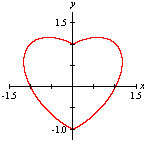题目链接:
题目简介:
(1)题目中的集合由 A-Z 的大写字母组成,例如 "{ABC}" 的字符串表示 A,B,C 组成的集合。
(2)用运算符三种集合运算,'+' 表示两个集合的并集,'*' 表示两个集合的交集, '-' 表示从第一个集合中排除第二个集合包含的元素。
(3)给出这样的表达式,求出表达式结果(按照字母顺序)。运算符优先级和编程语言中的规定相同,即优先级从高到低为括号,乘号,加/减号;相同优先级时从左向右。
例如: "{ABC}+{BCD}" = "{ABCD}";
题目分析:
属于常规的表达式求值,方法是借助两个栈来解析。本质上来讲,这是一个简单题目,但是细节比较繁琐,要写对需要耐心。集合可以用 bitset 来表示这个集合,由于集合的元素数目不会超过 26,因此用 uint32 整数即可表示集合,这样可以把集合运算转换为整数的位操作来完成,比直接处理字符串更加方便。例如:
s1: { A } -> n1 = 0x01;
s2: { B } -> n2 = 0x02;
则:(s1+s2)转换为(n1 | n2)。
题目声明输入数据都是合法的表达式,不需要考虑表达式合法性判断。则只需要表达式的解析,解析过程由运算符驱动,其中需要注意的细节有:
(1)左括号在栈内和栈外的优先级需要区分对待(在栈外具有最高优先级,入栈后则优先级降低,以让后续的运算符能够入栈)。
(2)右括号实际上不入栈,而是作为一个信号,负责把和它匹配的左括号从栈中弹出。
(3)在解析前,提前在运算符栈中压入一个左括号,这样编码形式就会统一(不需要考虑在最开始阶段,取不到栈内的运算符优先级的问题)。
(4)解析结束后,取出操作数栈中的唯一元素即可。再将其解析为字符串形式。
需要考虑的特殊情况比如:
({A})+({B}) 相当于:(1)+(2);
提交代码:

#include <stdio.h> #include <string.h> char stack_op[256]; unsigned int stack_num[256]; int top_op; int top_num; int GetPrecedence(char op, int bInStack); char* GetNumber(char *str, unsigned int *pNum); unsigned int Compute(char* line); int main(int argc, char* argv[]); int GetPrecedence(char op, int bInStack) { switch(op) { case 0: return 1; case '(': return bInStack? 1 : 100; case ')': return 1; case '+': return 2; case '-': return 2; case '*': return 3; } return 0; } /* {ABCDEFG}+ | | str ret_val */ char* GetNumber(char *str, unsigned int *pNum) { char *pCh = str + 1; *pNum = 0; while(*pCh != '}') { if(*pCh >= 'A' && *pCh <= 'Z') *pNum = *pNum | (1 << (*pCh - 'A')); ++pCh; } return pCh; } unsigned int Compute(char* line) { char *pCh; unsigned int n1, n2, result; int prec1, prec2; top_op = 0; stack_op[top_op] = '('; top_num = -1; pCh = line; while(1) { if(*pCh == '{') { pCh = GetNumber(pCh, &n1); ++top_num; stack_num[top_num] = n1; } else { prec2 = GetPrecedence(*pCh, 0); prec1 = GetPrecedence(stack_op[top_op], 1); if(prec2 > prec1) { ++top_op; stack_op[top_op] = *pCh; } else { while(prec2 <= prec1 && strchr("*+-", stack_op[top_op]) != NULL) { n1 = stack_num[top_num - 1]; n2 = stack_num[top_num]; switch(stack_op[top_op]) { case '+': result = (n1 | n2); break; case '-': result = (n1 & (~n2)); break; case '*': result = (n1 & n2); break; } --top_num; stack_num[top_num] = result; --top_op; prec1 = GetPrecedence(stack_op[top_op], 1); } if(*pCh == ')') { while(stack_op[top_op] != '(') { --top_op; } --top_op; } else if(*pCh == 0) break; else { /* push current operator into stack */ ++top_op; stack_op[top_op] = *pCh; } } } ++pCh; } /* __ENDOF__ while(1) */ if(top_num == 0) result = stack_num[0]; else result = 0; return result; } int main(int argc, char* argv[]) { unsigned int result, x; char line[256]; while(gets(line) != NULL) { result = Compute(line); printf("{"); for(x = 0; x < 26; x++) { if(result & (1 << x)) printf("%c", x + 'A'); } printf("}\n"); } return 0; }
提交结果:
| Judge Status | Problem ID | Language | Run Time(ms) | Run Memory(KB) |
| Accepted | 1958 | C | 0 | 172 |










【推荐】国内首个AI IDE,深度理解中文开发场景,立即下载体验Trae
【推荐】编程新体验,更懂你的AI,立即体验豆包MarsCode编程助手
【推荐】抖音旗下AI助手豆包,你的智能百科全书,全免费不限次数
【推荐】轻量又高性能的 SSH 工具 IShell:AI 加持,快人一步
· 如何编写易于单元测试的代码
· 10年+ .NET Coder 心语,封装的思维:从隐藏、稳定开始理解其本质意义
· .NET Core 中如何实现缓存的预热?
· 从 HTTP 原因短语缺失研究 HTTP/2 和 HTTP/3 的设计差异
· AI与.NET技术实操系列:向量存储与相似性搜索在 .NET 中的实现
· 10年+ .NET Coder 心语 ── 封装的思维:从隐藏、稳定开始理解其本质意义
· 地球OL攻略 —— 某应届生求职总结
· 提示词工程——AI应用必不可少的技术
· Open-Sora 2.0 重磅开源!
· 周边上新:园子的第一款马克杯温暖上架